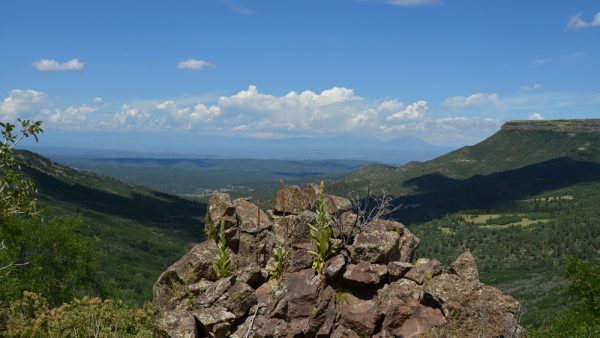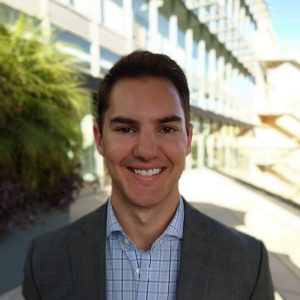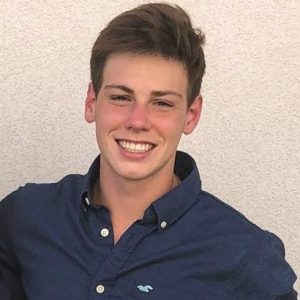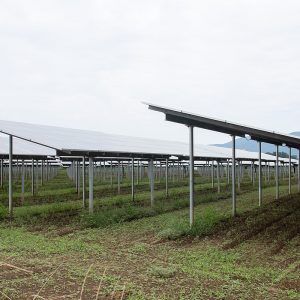This summer, the CSU Department of Economics was thrilled to launch a new program to increase funded research opportunities and data skill development for undergraduate students through paid research internships, matching motivated students who have learned baseline data and econometrics skills with faculty mentors to develop those skills through hands-on experience.
Under the leadership of Undergraduate Program Co-Director Steven Shulman, Economics faculty offered internships to an initial cohort of six students who worked for CSU research centers REDI@CSU, PAC@REDI, and CSAL; Feminist Economics, a peer-reviewed journal edited by Economics Chair Elissa Braunstein; an independent project on U.S. labor, led by Assistant Professor Zachary Schaller; and an external placement with the National Renewable Energy Laboratory.
“The Economics department has always had incredible research collaborations between our faculty and graduate students. Being able to extend these opportunities to undergraduates will go a long way towards preparing students to go into the workforce or on to graduate school when they leave CSU. We were happy to see that in this initial group of pairings, it was often a win/win/win for the students, faculty and the community,” said Shulman.

Ready for the job market
Senior Josh Rudd spent his summer as an undergraduate research intern for CSU’s Regional Economic Development Institute (REDI).
A team of cross-departmental faculty and graduate students, REDI is heavily invested in rural economic development and enlisted Rudd to assist with building a digital dashboard for every county in Colorado to track new small businesses through different stages of their life cycle.
“Small business is largely what keeps rural areas going, so we’re interested in better understanding entrepreneurship. I loved the idea of including undergraduate students where we can in order to give them some hands-on work experience in economics,” said Professor of Economics and REDI co-director Stephan Weiler.
REDI is also currently conducting a study of Fisher’s Peak, Colorado’s newest state park in Las Animas County, to estimate the park’s economic impact on the region. Rudd’s role was to assist with a literature review and econometric analysis to estimate the number of new visitors to the park, which just opened in October 2020 and is still in development, and the total dollars they bring into the area throughout their stay.
In both projects, Rudd has been able to practice and acquire new econometrics and data science skills through faculty mentorship and “just in time” learning through finding, organizing and manipulating raw datasets, as well as creating explanations, summaries and keys for several graphs and tables created from those datasets.
“I learned an immense amount from this experience. The biggest thing, I think, was seeing how classroom economics can be used in solving specific real-world questions. Even though I’ve worked through ‘realistic’ economics problems in various classes, it really doesn’t compare to having a specific open-ended question asked by independent organizations about a situation you can visit with a 4-hour car trip,” he said.
As Rudd prepares to graduate from CSU this fall, he is optimistic the experience will better prepare him for the job market.
“My time with REDI showed me how economics can be used in nearly any situation and industry. By having a background in economics, I can gain an edge in whichever field I pursue,” he said.


Faculty see returns on investments
An important component of the program is faculty mentorship. Interns typically met weekly with their mentor to check in on progress and ask questions as they worked through literature reviews and data analysis. When successful, these collaborations benefit both mentor and mentee with tangible results.
For senior Paul DeCelles and Assistant Professor Zachary Schaller, that’s exactly what happened. Schaller, who joined the CSU Economics department in 2020, is an applied microeconomist whose research focuses on labor markets, unions, and industrial conflict.
“Economic labor statistics are often broken out by detailed industry, identified by a corresponding numerical code using either the Standard Industrial Classification (SIC) scheme, largely used prior to 1997, or the now-standard North American Industry Classification System (NAICS) scheme. Translating from one to the other can be difficult, especially for people trying to create consistent time-series data,” Schaller explained.
In real terms? That means spreadsheets filled with data – a lot of it. For 10 hours a week, DeCelles poured over spreadsheets of industry codes to develop a tool that will help Schaller and fellow microeconomists translate between the two systems.
“Thanks to Paul’s efforts, we developed a series of crosswalks that can connect the systems smoothly at any level of aggregation,” said Schaller, who made the tool available to economist researchers in early July.
For the second half of the internship, DeCelles gathered union election data to help Schaller replicate and extend a study on the decline of union membership in the U.S., supplementing a paper that Schaller will submit for publication this fall.
“Professor Schaller provided me with an opportunity to develop research skills as well as gain more confidence in the world of data analysis, especially in R and Excel. Also, I strengthened my general research skills such as writing a report on specific findings from collected data,” said DeCelles, who is considering pursuing graduate studies in Economics or a career as a policy analysis after graduating from CSU.
“I think the internship has been really useful for both of us. I was able to tackle a few projects that would have otherwise stayed on the back burner, and Paul was able to see pretty quickly that our research labor bears fruit and can help others in the field,” said Schaller.

Cutting edge energy research
Increasing comfort with and capability to do remote work also contributed to successful summer internships. For senior Jawaher Al Maaini, remote work meant an incredible opportunity to work as a Solar and Agriculture Economic Analyst for the National Renewable Energy Laboratory (NREL) based in Golden, Colo.
Throughout her internship, Al Maaini conducted an extensive literature review of more than 75 economics studies on the cost, performance, and crop yield impacts of agrivoltaic systems – solar panels that allow crops to continue growing underneath, making dual use of Colorado farmland. As the technology is relatively new, economists can play a key role in helping energy companies and farmers who lease their land understand the potential for mutual profit.
“Jawaher has initiated what is likely to be the most comprehensive review and assessment of available literature in the field of agrivoltaics, which will serve as the foundation for follow-on synthesis studies and help guide future research directions,” said Jordan Macknick, NREL energy engineer and environmental analyst. “She was very eager to tackle this challenge, and she showed great, efficient talent in extracting data from the studies and synthesizing the results.”
“My experience this summer has been phenomenal. I had a great time working closely with Jordan and [faculty mentor] Dr. Weiler, and I learned a lot about agrivoltaics and how they relate to economics. While I didn’t have the chance to visit the labs or the field to see the work due to the pandemic, I still got a good visualization of the work. I hope to continue working on something similar after graduation,” said Al Maaini.
Weiler hopes NREL is simply the first of many outside agencies who will partner with CSU to offer these cutting-edge research opportunities to economics undergraduates.
“The neat thing about this program is that CSU pays the student interns, which is sparking interest in the program among many of our external partners. Economists working throughout the state really like this idea, and we’re excited about the prospect of expanding the number of external internships in the coming semesters,” he said.
Fall Internships Available
Following the successes of the summer program, the Department of Economics is seeking to fill eight positions for the Fall 2021 semester for research projects detailed here. Internships pay $15/hour for approximately 10 hours of work per week, up to $2,500 per position.
To apply, a student must have declared a major in Economics and have successfully completed ECON 235 (Working with Data) and/or ECON 335 (Introduction to Econometrics). Successful applicants will be prepared to assist the project with strong data and communication skills but will also receive faculty mentorship throughout the semester to increase their knowledge and skills.
Economics students who meet these requirements are encouraged to apply on Handshake by the deadline, Wednesday, August 25.